 *Teachers play an important role in the growth of students.
*Teachers are the guiding forces and mentors of one’s life. Many great teachers’ throughout the world have brought revolution in the society.
*Teachers and mentors like Socrates and Aristotle have guided the society to a new kind of thinking and produced a different school of thought...
*Teachers are the guide and mentors of one’s life. The definition of a teacher is very wide; one can not limit it to the subject teacher itself. Anyone who guides and mentors one’s life is a teacher. So, a teacher is someone who is the inspiration behind one’s success.
*A teacher guides you towards success with full dedication and selflessness. He/She disperses his knowledge amongst his students and thus enlightens the society with the light of wisdom. The profession of teacher is considered to be the noblest of all the professions.
* A teacher plays the role of a mentor, a guide and a philosopher at different stages of life. Though teacher is the guiding light and motivational force behind one’s journey towards success .
*A teacher is a wonderful human being who devotes his entire life in the enlightenment and uplift meant of society. He/She selflessly dedicates himself/herself to the cause of others. . . .
OUR SOCIAL WORK FACULTY !!!!
Ms. Nel Kiamco Labrador, RSW- Program Coordinator
Top Natcher During 2003 Social Work Board Exam-Top 3
Alumni Of Lourdes College-Social Work Program
Handling SW 12 and SW 13 Subjects
Ms. Ivy Amor Urbina, RSW- Faculty
Top Natcher During 2003 Social Work Board Exam-Top 9
Alumni Of Lourdes College-Social Work Program
Handling SW 4 and SW 11 Subjects
Ms. Milfe Resus,RSW-Faculty
Alumni Of Lourdes College-Social Work Program
Handling SW 14
Ms. Suhji M. Abecia,RSW- Faculty
Alumni Of Lourdes College-Social Work Program
Handling SW10
Ms. Sheena Marie Pabilona,RSW-Faculty
Lourdes College MISCA Coordinator
Alumni Of Lourdes College-Social Work Program
Handling SW3.
Ms. Perlaida Norma Puno, RSW,MTSW- Faculty
Handling Elective 1 and SW5
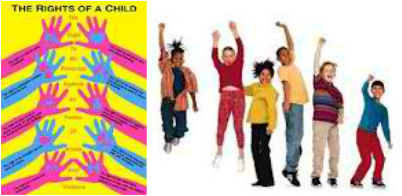 CHILDREN'S RIGHTS AND RESPONSIBILITIES
If you are a child in care, this page is for you:))
If you are a parent, this information will help you understand your child’s rights and responsibilities while in care.
What are rights and responsibilities?
A right is something that you are entitled to and can’t be taken away. A responsibility is something that you must do.
What are my rights?
You have the right to feel safe:
No one has the right to make fun of you or hurt you in any way, even if you do something wrong.
You have the right to have someone look after you.
You have the right to stay connected to your family and community:
You have the right to visit your family or anyone else important to you, unless a judge or your social worker decides it’s not a good idea.
You have the right to be involved with your Native community, whether that is here in or another location.
You have the right to be respected for who you are:
This includes the things that may be important to you, such as your cultural and spiritual beliefs, your language, and your family background.
You have the right to be heard when people are making decisions about your life:
You have the right to express your feelings and wishes with everyone involved in your situation.
You have the right to speak up if you think something is wrong.
You have the right to speak with your social worker or your lawyer without anyone else around.
You have the right to privacy:
You have the right to have time by yourself.
You have the right to keep your own things.
You have the right to send and get letters that only you can read. (Sometimes your social worker may check your mail, if she or he thinks there is something in it that might hurt you.)
You have the right to the things that are important to your health, safety and well being, including:
Food that is good for you.
Attending school.
Visiting the doctor and dentist to keep you healthy.
Clothing that fits well and keeps you warm.
Playing games and sports.
Practicing your religion and participating in cultural activities.
What are my responsibilities?
You have the responsibility to follow the rules in the place where you live:
You have the right to know and understand the rules and the right to know what will happen if you break them.
You must make sure your foster parents know where you are when you’re not at home.
You have the responsibility to talk:
To your social worker.
To your foster parents about what’s going on in your life.
You have the responsibility to go to school when you should and to do your homework.
You have the responsibility to be respectful of others and of property:
Respect other children, neighbors, and property.
Respect the privacy of other people.
Don’t take other people’s things without their permission.
Respect that every person is different.
Be helpful in the home and do your share of chores.
“Rights" are things every child should have or be able to
do. All children have the same rights!!!
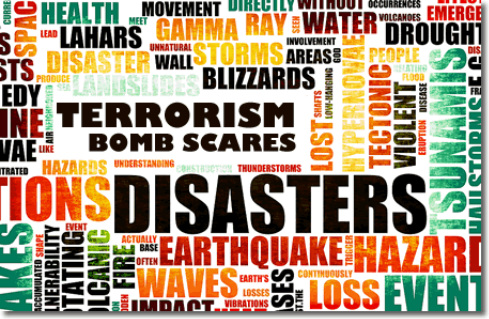 City governments, provincial governments, college campuses, convention venues, and large corporations in any places in the country will benefit and find themselves in a state of preparedness for a diverse set of disaster scenarios by participating in these exclusive seminars. With increases of natural disasters, amplified potential terrorism risk, global climate change and the intrinsic-dangerous geographical location of the Philippines, it is imperative that governments and large public entities be prepared for disasters. The Philippines is subject to a diverse set of threats, be it natural or man-made, a thorough and well thought-out preparedness plan is crucial today more than even.
TERRORISM AND BOMBING IN THE PHILIPPINES
Like it or not our nation is subject to many terrorist and bombing incidents. We live in a diverse nation with many ideologies, political parties and those intent on promoting their agenda through the use of violence. Rebel organizations against the Philippine government, its citizens and supporters have made their objections and opinions known through the use of violence. The truth of the matter is that bomb scares are almost a daily incident in our country.
WATER RELATED DISASTERS AND THE NEED FOR WATER BASED SURVIVAL TRAINING
The Philippines is a nation surrounded by water. Insomuch so, the nation sees many water-related accidents and disasters on a yearly basis. Literally thousands of people have been killed by ferry and boating accidents in the Philippines.
Due to the fact we are a nation of 7100 islands, and many are not able to afford air travel or they are located too remote to an airport facility, ferry boats are the predominant mode for national travel.
Bad weather, especially during typhoon season, poor maintenance, overloading of vessels -- especially during the Christmas season as families return to their villages for reunions -- and lax enforcement of regulations has brought many tragedies.
FLOODS, TYPHOONS AND CLIMATE CHANGE
An average of 20 typhoons and dangerous storms arrive in the Philippines from the Pacific Ocean over the eastern seaboard yearly. The Philippines has been the unfortunate recipient of increased flooding from move powerful and dangerous typhoons in recent years.
In 2009 Ondoy hit the Philippines. This was one of the most devastating typhoons in modern history with 73 dead and more than 300,000 people left homeless. It appears global climate change is dealing island nations some of the hardest blows.
Many scientists and experts in world climate change predict additional calamities as the rise in average ocean levels from global warming and the effects of iceberg and glacier meltdown continue to grow. Unfortunately, the coastal areas of the world and island nations such as the Philippines are once again most at risk.
VOLCANOES
Volcanoes are a fact of life in the Philippines. Most of the 7100 islands of the Philippines are actually of volcanic origin. There are 37 volcanoes in the Philippines, of which 18 are still active volcanoes.
The most widely known volcanoes in the Philippines are Mt. Pinatubo, Mt. Mayon and the Taal volcano. These are all on the main island of Luzon. We all know the devastating effects of Mt Pinatubo. Erupting in June 1991, this powerful volcano produced the second largest terrestrial eruption of the 20th century.
Over 800 people were killed by the eruption, mostly by roofs collapsing under the weight of accumulated and saturated wet ash, a hazard that was largely exacerbated by the simultaneous arrival of Typhoon Yunya.
Additional preparedness and knowledge of the dynamics of weight loading to roofs from this deadly mixture could have quite possibly saved hundreds of additional lives. Thanks to advance seismic activity analysis and the informed preparedness of the officials of the area, tens of thousands of people were evacuated from the immediate site prior to the eruption, thereby significantly reducing the overall death count.
EARTHQUAKES AROUND THE WORLD AND IN THE PHILIPPINES
Worldwide, over the last few decades, a marked increase in more powerful earthquake activity is painfully obvious. With the Philippines residing in the middle of the most active earthquake zone in the world, The Ring of Fire, it is incumbent and critical that officials and those responsible for large groups are required to be prepared for the inevitable unexpected upheaval, resultant damage and potential casualties.
All governmental and private entities responsible for large segments of the population should be prepared for these fateful natural disasters and put into force mitigation techniques to reduce potential risk and loss of life. These comprehensive and timely seminars provide the kind of training needed to better-prepare administrators and first res ponders...BE AN AGENT OF CHANGE!!!
Excerpt from Social Workers Creed
Poem to honor Social Workers
Copyright Deborah Young
We are Social Workers, all with an eclectic dossier
We are educated from many an accredited CSWE academy
We hail with the BSW, MSW or DSW degrees
And, stints of unique supervised fieldwork, has enhanced our abilities
We are licensed, certified or even registered; valid, prudent uniformity
Be it LCSW, LMSW or LBSW; the titles, we display, respectfully
We empower, helping people help themselves; we’ve got the right stuff
We possess dedication, determination and competency; minus the fluff
Sho’ ‘nuf, we are America’s empathetic angels; tuff enough
The NASW Code of Ethics, we staunchly adhere to and abide
Cause it encompasses values, principles and standards to guide
We celebrate March as National Professional Social Work Month, for sure
Yet, throughout the year, we practice what we preach, without forfeiture
We definitely make a difference, free of an air of flare
We are authentic and resolute, with lots of care
We claim it; we are judicious Social Workers, extraordinaire
Social Work heroes; worthy of a Bust on a Stand; forever, there...
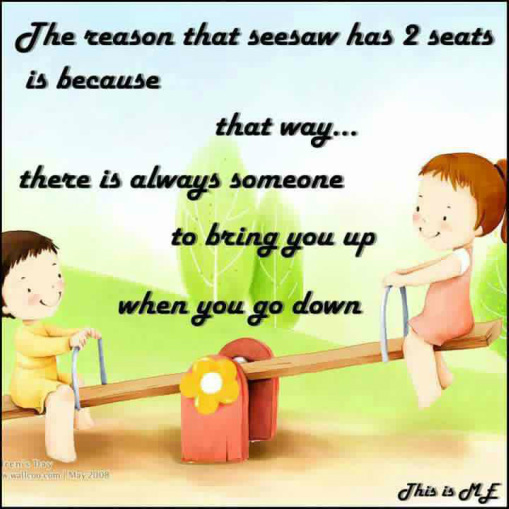 “You have to believe in yourself, that's the secret. Even when I was in the orphanage, when I was roaming the street trying to find enough to eat, even then I thought of myself as the greatest actor in the world. I had to feel the exuberance that comes from utter confidence in yourself. Without it, you go down to defeat.”
Charlie Chaplin (1889-1977);
Comic Actor, Filmmaker, WriterTHIS IS THE WAY HOW WE EMPOWER OUR CLIENTS!!!
 The New Registered Social Workers marching In The Red Carpet. . .
Congratulations to all of you!!!
134 BAUZON, MERIAM TRAYA
104 BAIDIANGO, FELIPE ALBAO
182 BUSTOS, JOAN TOMAMPOS
183 BUTIL, DONNA MARIE JABAGAT
480 LEGASPI, JAMICCA JANE ALABA
598 MOLINA, QUEENA FLORES
759 SABUGA-A, HONEY JANE
885 YAÑEZ, BRIDGET SABO
Lourdes College Social Work Program Made It Again 100% Passing Rate!!!
It is a challenge to prove that truly you are a REGISTERED SOCIAL WORKERS!!!
Continue to carve your way to your chosen field and you will surely be a GOOD and EFFECTIVE Social Workers:))
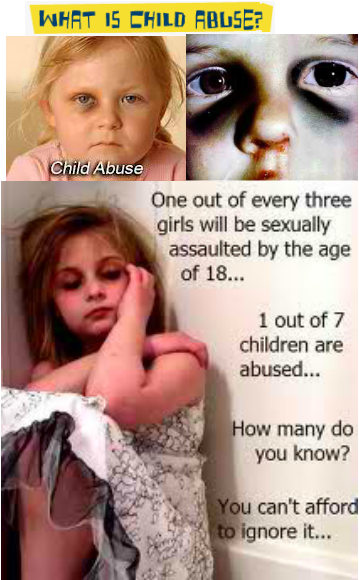
Parents and adults in your family have a responsibility to look after you and care about you. If family members do things that hurt you, scare you, or make you feel bad about yourself, then this isn't okay. When parents or adults harm children or young people, it is called 'child abuse'.
Forms of abuse towards young people and kidsChild abuse doesn't always involve physical violence. Other forms of abuse can hurt just as much.
Emotional abuse is when a parent (or another adult) constantly puts you down, calls you names, makes you feel like you're worthless, or always acts like they don't want you or don't care about you.
'It feels like I'm not important. She says I'm stupid and I am always in the way, she wishes she never had me.'
Neglect is when a parent doesn't look after your needs (like providing food, clothes, a safe home and medical attention).
'When mum was off her face I'd have to take care of myself, even when I was a little kid. Lots of times there was no food in the house. I used to stay home a lot to look after her.'
Physical abuse includes when a parent, a family member (such as a relative or a sibling) or an adult hits, bashes, or physically injures you, or threatens to hurt you.'We used to know what was coming. A few times I even tried to hit him back.'
Sexual abuse is when a parent, someone in your family, or someone else, makes you do sexual things (including touching your private parts, making you touch them or look at their private parts). They might trick you, pressure you, scare you, confuse you or threaten you so that you feel like you have to do these things.'I wasn't allowed to shut the door if I was in the shower. He had to be able to see me all the time.'
These forms of abuse can happen between brothers and sisters, too. If a brother or sister hurts you, bullies you, always puts you down, or makes you do sexual things, then they are not treating you right.
It can be confusing if sometimes your parents or family members might treat you ok, then at other times they do things that hurt and upset you. But you never deserve abuse. You can do something about it.
|



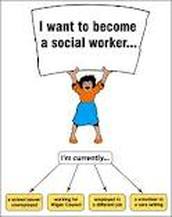



 RSS Feed
RSS Feed